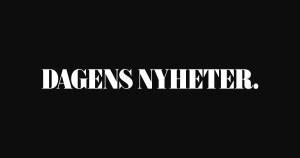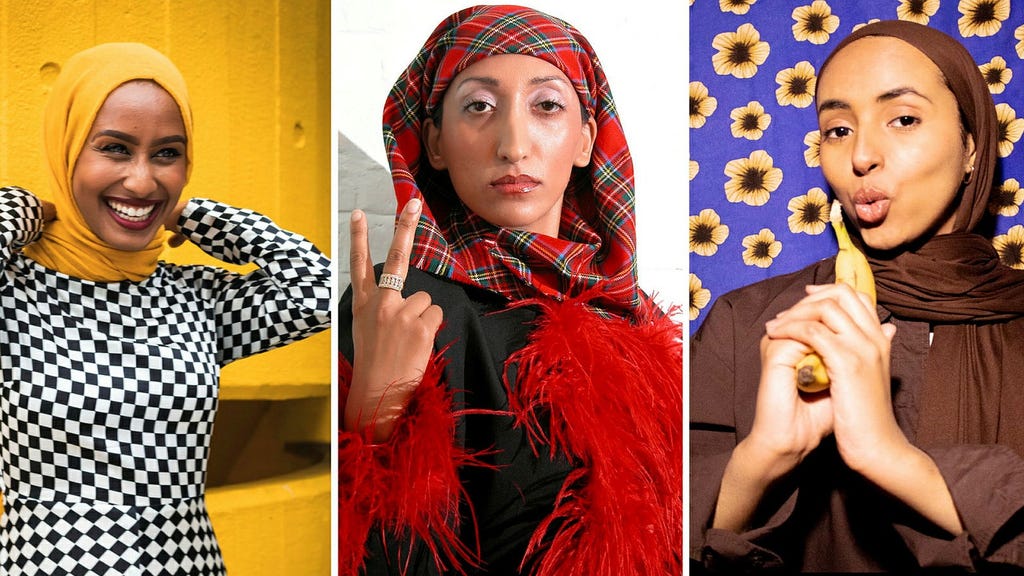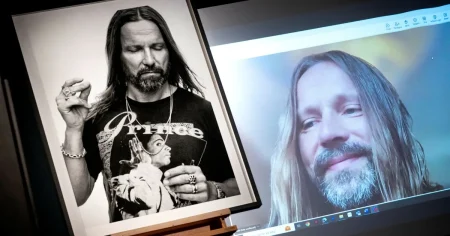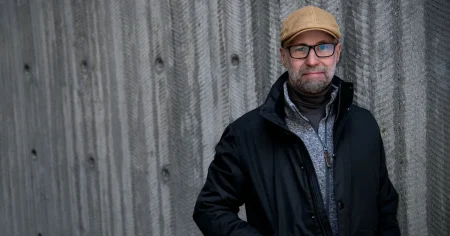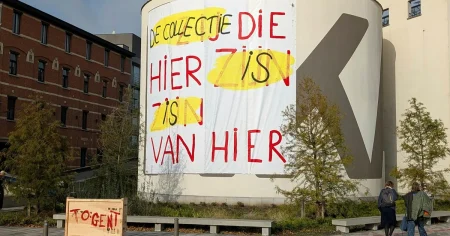This review explores a stand-up comedy event titled ”Funny & Fearless – Muslim Women Stand-Up,” featuring eight female comedians of Muslim heritage, held at the Maxim Theatre in Stockholm. The reviewer emphasizes the power of comedy originating from marginalized perspectives, highlighting how this diverse group of comedians, performing in an upscale venue on Östermalm, effectively demonstrates this principle. The audience, a mix of young women in hijabs, older cultural enthusiasts, and others, reflects a welcome diversity, showcasing the appeal of the performance across different demographics.
The review divides the show into two parts. The first half, featuring Swedish comedians, is described as a ”warm-up,” providing entertaining and politically pointed commentary, particularly by Melody Farshin. This portion relies heavily on relatable humor for a significant segment of the audience, touching upon topics like dealing with racist remarks and navigating cultural differences within Swedish society. Zinat Pirzadeh and Melody Farshin’s sets, tackling experiences such as being hungover in a burka and attending a Christmas buffet with Swedish colleagues, are singled out for their sharp wit and potential to resonate with the audience.
The second half of the show is where the reviewer believes the performance truly elevates. British comedians Ola Labib and Fatiyah Saleh are praised for their uniquely English charm and respectful delivery, while simultaneously critiquing white, and particularly Swedish, culture. Their subtle approach, blending blasphemy with politeness, is noted as a skill rarely seen in Swedish comedy. This ability to disarm the audience with pleasantries while delivering pointed observations allows them to address potentially sensitive topics with surprising efficacy.
Yasmine Elhady, an American comedian, emerges as the highlight of the evening. Her striking appearance, combining a hijab with a glamorous pink dress and glitter pumps, creates an intriguing juxtaposition, hinting at the complexities of her identity and comedic style. Her background as a lawyer and single mother of two children, one with an Afghan father, provides rich material for her act. Elhady’s delivery is lauded as magnificent, weaving together blasé detachment, self-deprecating humor, and sharp sarcasm across a range of topics, leaving the reviewer to imagine a full-length performance dedicated solely to her talent.
The final act features the established comedian Shazia Mirza, originally from Birmingham, UK. Mirza, who has toured Sweden previously, delivers a proficient and edgy set but is criticized for rehashing older material, specifically jokes about young women joining ISIS. While acknowledging her skill, the reviewer sees this repetition as a missed opportunity. However, Mirza’s anecdote about being compared to Chris Rock by her father, leading her to believe she was a black man, poignantly illustrates the lack of representation for Muslim women in comedy, tying back to the overall theme of the evening.
The review concludes by emphasizing the event’s success in showcasing the untapped potential of female Muslim comedians. Their perspective, inherently ”punching up” against societal norms and expectations, provides a fresh and valuable comedic voice. The performance served as a testament to the power of diverse representation in comedy, leaving the audience with a strong impression of the burgeoning talent within this specific comedic landscape. The varied experiences and perspectives shared throughout the evening offered a unique form of social commentary, highlighting the complexities of identity, cultural differences, and the challenges faced by Muslim women in contemporary society.


